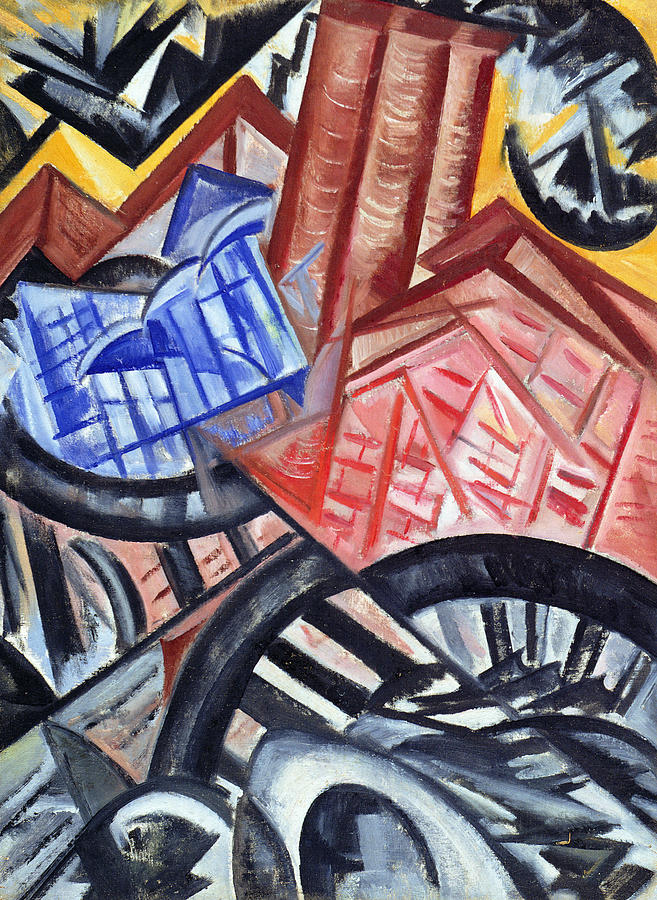A POWER-PLANT
By:
March 3, 2025
A series dedicated to poems, published c. 1900–1935, the Radium Age sf-adjacent themes of which include: dystopia and utopia, far-out mathematics and the fourth dimension, Afro-futurism, catastrophe, future war, new technologies, scientific breakthrough, dehumanization, cosmic awe, disenchantment and unseen forces, unknowable aliens and singularity. Research and selection by Joshua Glenn; thematic index here.

The Fisk Street turbine power station in Chicago
The invisible wheels go softly round and
round —
Light is the tread of brazen-footed Power.
Spirits of air, caged in the iron tower,
Sing as they labor with a purring sound.
The abysmal fires, grated and chained and
bound,
Burn white and still, in swift obedience
cower;
While far and wide the myriad lamps,
aflower,
Glow like star-gardens and the night
confound.
This we have done for thee, almighty Lord;
Yea, even as they who built at thy
command
The pillared temple, or in marble made
Thine image, or who sang thy deathless
word.
We take the weapons of thy dread right
hand,
And wield them in thy service unafraid.
— From Monroe’s 1914 collection, You and I. However, the collection includes poems first published as early as 1905.
The poem references Edison’s Fisk Street power plant in Chicago — the plant that housed GE’s first steam turbine generator unit. The 1903-opened plant was permanently closed in 2012.
From AllPoetry.com:
The final lines of the poem emphasize the speaker’s sense of awe and purpose in wielding the “weapons of [God’s] dread right hand” in the service of progress and innovation. The use of the word “weapons” suggests the immense power and potential for transformation inherent in the technology of the power plant, while the phrase “unafraid” conveys the speaker’s confidence in the righteous and beneficial use of this power.
Overall, “A Power-Plant” is a celebration of human ingenuity, technological progress, and the transformative power of electricity. The poem’s vivid imagery and elevated language create a sense of awe and wonder at the industrial landscape, while also suggesting a deeper spiritual significance in the work done there.
RADIUM AGE PROTO-SF POETRY: Stephen Spender’s THE PYLONS | George Sterling’s THE TESTIMONY OF THE SUNS | Archibald MacLeish’s EINSTEIN | Thomas Thornely’s THE ATOM | C.S. Lewis’s DYMER | Stephen Vincent Benét’s METROPOLITAN NIGHTMARE | Robert Frost’s FIRE AND ICE | Aldous Huxley’s FIFTH PHILOSOPHER’S SONG | Sara Teasdale’s “THERE WILL COME SOFT RAINS” | Edith Södergran’s ON FOOT I HAD TO… | Robert Graves’s WELSH INCIDENT | Nancy Cunard’s ZEPPELINS | D.H. Lawrence’s WELLSIAN FUTURES | & many more.
